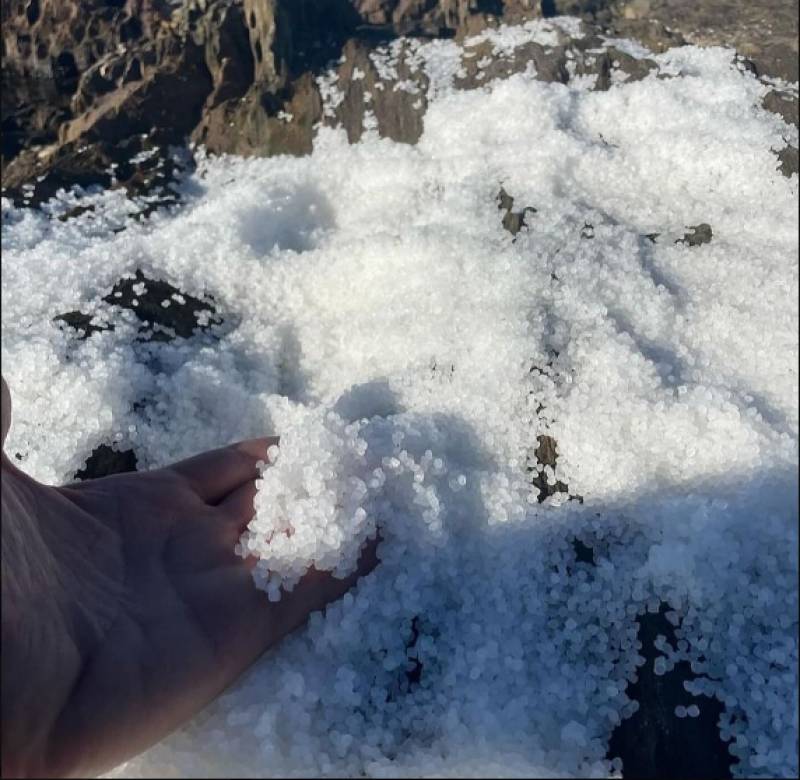article_detail
Date Published: 09/01/2024
Potentially dangerous plastic pellets wash up on Spanish beaches
The plastic has flooded the coast of Spain following a merchant ship spill near Portugal
 The northern coast of Spain has been blanketed in white since the middle of December, but this dusting isn’t caused by snow or hail. Instead, millions of tiny plastic pellets have washed up on the beaches of Galicia and Asturias, sparking concerns of an environmental crisis in Europe.
The northern coast of Spain has been blanketed in white since the middle of December, but this dusting isn’t caused by snow or hail. Instead, millions of tiny plastic pellets have washed up on the beaches of Galicia and Asturias, sparking concerns of an environmental crisis in Europe.While the regional government tries its best to contain the problem and even downplay its significance, the European Commission (EC) has already refuted claims that the particles aren’t “toxic or dangerous.”
Instead, Brussels is insistent that the pellets are extremely harmful to the natural environment and could even put humans at risk.
This potential disaster stems back to December 8 when a number of containers fell into the water off the coast of Portugal from the merchant ship ‘Tocano’. One of these contained plastic pellets stored in 25 kilo bags, which have since split open and spilled their contents all over the northern Spanish coast.
The Spanish government is currently monitoring the situation to determine if it is a “large magnitude” risk and whether alert level 3 should be raised, as it already affects several communities.
Accidents like this one are the very reason the EU issued a blanket ban on certain types of microplastics back in October. Each year, between 52 and 184 thousand tonnes of pellets are accidentally released into the environment, where they cause untold damage, particularly to marine life.
“Once in the environment, these small plastic particles do not biodegrade and cannot be eliminated. They accumulate in animals, including fish and mollusks, and are therefore also consumed by humans in food,” a Commission spokesperson elaborated.
“Their continued release contributes to the permanent contamination of our ecosystems and food chains. Exposure to microplastics in laboratory studies has been linked to a number of negative (eco)toxic and physical effects on living organisms. It is also likely that microplastics are toxic to human beings,” he added.
The Environmental Prosecutor’s Office has opened an investigation into this pellet contamination but in the meantime, local volunteers in Galicia and Asturias have taken to the beaches with buckets to collect the dangerous particles by hand.
Image: SEO/BirdLife
Loading
See more environmental news about Spain:
OR
Sign up for the Spanish News Today Editors Roundup Weekly Bulletin to get a comprehensive email with all the week’s news for Spain, Murcia, Alicante and Andalucía.
Get a sneak peek – here are a few of our recent Subscription Bulletins:
Discount Special Offer subscription:
36.95€ for 48 Editor’s Weekly News Roundup bulletins!
Please CLICK THE BUTTON to subscribe.
Contact Spanish News Today: Editorial 966 260 896 /
Office 968 018 268



























